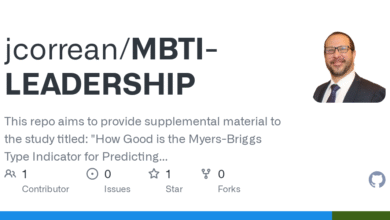Apple App Store Fees: New Changes Under EU Regulations

Apple App Store fees have recently come under scrutiny as the tech giant unveiled changes tailored to comply with EU regulations. In a bid to avoid a hefty fine of around 500 million euros linked to the Digital Markets Act (DMA), Apple is adjusting its billing structure, causing some app developers to face multiple fees for a single download. The newly introduced fee structure, which includes a “core technology commission” at 5%, signifies a shift in the company’s approach to monetizing app transactions outside its platform. As Apple strives for compliance with EU regulations, these adjustments prompt a reevaluation of its longstanding policies that have drawn criticism for their high commission rates ranging from 15% to 30%. This situation underscores the tech giant’s efforts to navigate the complex landscape of regulation while still maintaining profitability through strategic fee management for app developers.
In recent discussions surrounding the Apple ecosystem, there has been an increased focus on the financial structures associated with the App Store. The adjustments made in response to evolving EU regulations highlight Apple’s need to align its policies with the principles outlined in the Digital Markets Act (DMA). As the company introduces a more intricate fee system for app creators, concerns about potential monopolistic behavior and compliance come to the forefront. By redefining how developers are charged, Apple is grappling with external pressures while attempting to uphold its revenue generation strategy. This ongoing transformation within the app marketplace reflects broader challenges faced by tech companies in adapting to new regulatory landscapes.
Understanding Apple App Store Fees in the Context of EU Regulations
Apple has recently adjusted its App Store fees in response to regulatory pressures from the European Union, particularly under the Digital Markets Act (DMA). This adjustment is significant as it aligns with EU regulations, aiming to prevent hefty fines that could amount to 500 million euros. The new fee structure introduced by Apple is more complex than before, where developers may encounter multiple fees for a single app download, significantly altering the financial landscape for app developers operating on the platform.
These changes represent a crucial step in Apple’s strategy to comply with the evolving regulatory environment in Europe. The introduction of a 5% core technology commission on digital transactions made outside the App Store illustrates Apple’s need to adapt while still safeguarding its revenue model. However, critics argue that even with these changes, Apple’s core policies around commission rates, which typically hover around 15%-30%, remain largely unchanged, sparking ongoing debates about fairness in app store operations.
Implications of the Digital Markets Act on Apple Compliance
The Digital Markets Act lays down stringent requirements for tech giants like Apple, aiming to promote fair competition and diminish monopolistic practices. In light of these regulations, Apple’s approach to compliance involves ongoing collaboration with the European Commission to reevaluate their existing business practices. This cooperative stance indicates that Apple is not just making superficial changes to evade penalties but is attempting to navigate a challenging regulatory framework designed to empower app developers and enhance user choice.
Despite these efforts, there are concerns that Apple’s current compliance measures might fall short of satisfying the DMA’s underlying objectives. The investigation initiated by the EU, prompted by objections from competitors like Spotify and Epic Games, suggests that the modifications announced by Apple may not facilitate genuine competition or provide enough clarity regarding alternative purchasing options for consumers. As the Commission continues its scrutiny, how Apple addresses these compliance challenges will significantly impact its operations in Europe.
Challenges Faced by App Developers under New Fee Structures
App developers are currently navigating a complex landscape shaped by the recent changes to Apple’s fee structure. With the introduction of multiple fees for downloading a single app, developers now face challenges in budgeting and projecting revenue. The layered fee system could deter new developers from entering the ecosystem, fundamentally altering the dynamics of app distribution and innovation. This environment raises the stakes for developers who rely heavily on fair access to marketplace opportunities.
Furthermore, the push for alternative payment methods, mandated by the DMA, adds another layer of intricacy for developers. Developers are often caught between balancing compliance with Apple’s stringent policies while adhering to their operational needs and user experience. The criticism from established companies highlights concerns around whether Apple’s compliance is genuine or merely a tactical maneuver to satisfy regulators without making substantial improvements that truly benefit the developer community.
Ongoing Legal and Regulatory Battles Impacting Apple
Apple is currently entangled in a series of legal and regulatory battles that extend beyond the European landscape. The aftermath of recent court rulings in the U.S. has invalidated some of Apple’s longstanding restrictions regarding steering, which previously limited app developers’ ability to direct users to external purchasing options. These rulings have a twofold impact: they empower developers to explore alternative payment systems while simultaneously pressuring Apple to reassess its commission model.
In light of these ongoing challenges, the adjustments to App Store fees signal a crucial moment in Apple’s strategy. The company’s retention of certain business practices amidst vehement pushback illustrates a broader struggle between compliance and maintaining its established revenue model. As legal battles progress, Apple’s ability to adapt while still honoring its core policies will be pivotal in shaping the future of app distribution and developer relations.
The Role of Competitors in Shaping App Store Policies
Competitors like Spotify and Epic Games play a significant role in shaping Apple’s app store policies. Their vocal opposition against Apple’s perceived monopolistic practices has triggered regulatory scrutiny from the European Commission and other global authorities. These competitors have successfully brought attention to issues surrounding Apple’s commission rates and payment restrictions, urging for a more equitable marketplace for all app developers.
The influence of these competitors highlights the ongoing conflict between Apple’s dominant market position and the desire for fair competition within the app ecosystem. As these companies continue to challenge Apple’s policies, they could catalyze further regulatory action that may force Apple to revise its approach significantly, thus benefiting developers and consumers alike.
Market Reactions to Apple’s App Store Changes
The market’s reaction to Apple’s recent changes in its App Store fees has been a mixture of skepticism and cautious optimism. Many industry analysts are closely monitoring how these adjustments will affect developer sentiment and overall app ecosystem dynamics. The fee structure’s complexity could potentially alienate smaller developers who may find it increasingly challenging to operate profitably within Apple’s platform.
However, there is also some optimism that these adjustments could lead to a more equitable playing field, fostering innovation and diverse app offerings. As Apple adapts to regulatory pressures, developers and consumers alike are watching to see if this results in significant improvements in user experience and more diverse business opportunities, especially for those previously hindered by Apple’s strict guidelines.
Evaluating the Future of Apple’s App Store Policy
Looking ahead, the future of Apple’s App Store policy remains uncertain, with ongoing scrutiny from both regulators and competitors. Apple’s ability to innovate its fee structures while ensuring compliance with EU regulations like the DMA will be critical. As the landscape evolves, Apple must strike a balance between protecting its revenue channels and fostering an environment that is conducive to developer success.
Additionally, the forthcoming adjustments may signal a shift in how Apple engages with its developer community. If Apple can successfully implement changes that align with regulatory expectations while addressing developer concerns, it may enhance its reputation not only in Europe but globally. This evolving scenario will be pivotal in determining how effectively Apple can sustain its platform’s growth amid mounting regulatory pressures.
Impact of EU Regulations on Global App Markets
The ripple effect of the European Union’s regulations, particularly the Digital Markets Act, is poised to impact app markets worldwide. As Apple adjusts its App Store fees to align with EU directives, other countries may follow suit in reevaluating their own digital marketplace regulations. This trend could prompt a broader reassessment of how app ecosystems operate on a global scale, pushing for more transparent and competitive practices industry-wide.
Moreover, the increased scrutiny of Apple’s practices sets a precedent for other tech giants, suggesting that compliance with fair competition laws is increasingly non-negotiable. The implications of these changes may encourage more jurisdictions to implement similar regulations, ultimately transforming the way app distribution and revenue share models are structured, and potentially leading to more sustainable business practices for developers everywhere.
The Need for Greater Transparency in App Store Operations
As regulatory pressures mount, the call for greater transparency in app store operations has never been more pronounced. Developers and consumers alike are pushing for more clarity regarding commission structures and the processes surrounding fee determination. Apple’s new measures, albeit reactive, could pave the way for enhanced transparency, helping users better understand the economics of app purchases and enabling fairer practices within the digital marketplace.
In adhering to transparency guidelines, Apple could foster stronger relationships with developers, encouraging collaboration and innovation that benefits all stakeholders. By opening channels of communication and providing insight into its fee structures and policy decisions, Apple can begin to rebuild trust within a community that has felt overshadowed by the company’s dominance in the app market.
Frequently Asked Questions
What are the recent changes to Apple App Store fees due to EU regulations?
Apple has announced changes to its App Store fees in response to EU regulations aimed at compliance with the Digital Markets Act (DMA). The new fee structure introduces a complex commission system, including a core technology commission of 5% for transactions outside the App Store, which may result in developers facing multiple fees for a single app download.
How do Apple App Store fees compare before and after the implementation of the Digital Markets Act?
Before the Digital Markets Act, Apple typically charged app developers a commission ranging from 15% to 30% for transactions. The new App Store fees introduced in compliance with the DMA include a lower base fee of 5% for external digital transactions, but may lead to some developers incurring multiple fees, complicating the overall cost structure.
Are app developers in Europe likely to face higher fees under the new Apple App Store fee structure?
Under the new Apple App Store fee structure designed to align with EU regulations, some app developers could experience higher fees due to the complexity introduced. Developers may now be charged several fees for a single app download, increasing costs despite the 5% core technology commission for external transactions.
How is Apple ensuring compliance with the Digital Markets Act regarding App Store fees?
Apple is working closely with the European Commission to ensure that its App Store fees comply with the Digital Markets Act. This includes implementing new fee structures and programs aimed at providing developers with more options for app promotion and distribution, as well as evaluating ongoing compliance with EU requirements.
What legal challenges could affect Apple App Store fees in the future?
Apple faces ongoing legal challenges related to its App Store fees, especially regarding U.S. court rulings that have disallowed certain restrictions on directing app users to external purchasing options. Such legal battles may influence future adjustments to the App Store fees and Apple’s overall compliance with international regulations.
Why has Apple been criticized for its App Store fee structure in light of recent EU regulatory changes?
Apple’s App Store fee structure has faced criticism from competitors like Spotify and Epic Games, who argue that the new measures represent ‘malicious compliance’ with EU regulations. Critics claim that these changes do not significantly address the primary concerns about high fees and restrictive practices under the Digital Markets Act.
What does the term ‘core technology commission’ mean in relation to Apple App Store fees?
The ‘core technology commission’ refers to a new fee introduced by Apple, set at 5% for all digital transactions processed outside the App Store. This commission is part of Apple’s broader effort to comply with EU regulations while restructuring its App Store fees amid scrutiny from the European Commission.
How might the new Apple App Store fees impact app developers in Europe?
The new Apple App Store fees, influenced by EU regulations, may provide app developers in Europe with more transparency and options for transactions. However, the introduction of a complex fee structure, including potentially multiple fees for a single app download, might also lead to increased costs and revenue challenges.
| Aspect | Details |
|---|---|
| New Fee Structure | Apple introduces a complex fee structure, including a 5% commission for transactions outside the App Store. |
| Compliance with DMA | Changes aim to prevent a fine from the EU for potential violations of the Digital Markets Act. |
| Developer Fees | Some developers may face three separate fees for a single app download. |
| Ongoing Evaluations | Apple and the European Commission are conducting evaluations to ensure compliance with DMA. |
| Criticism from Developers | Companies like Spotify and Epic Games criticize Apple for ‘malicious compliance’. |
| Legal Challenges | Apple faces ongoing legal battles in the U.S. regarding its commission structure. |
| Future Outlook | Apple indicates plans to appeal unfavorable rulings under the DMA framework. |
Summary
Apple App Store fees are undergoing significant changes in Europe as the company aims to avoid a hefty fine from the EU related to potential violations of the Digital Markets Act. The introduction of a new, complex fee structure highlights Apple’s efforts to adapt to regulatory pressures, although critics express skepticism about the adequacy of these changes. As ongoing evaluations with the European Commission continue, Apple’s strategies regarding its App Store fees remain a critical aspect of its business framework, directly influencing developer relationships and legal standings worldwide.




